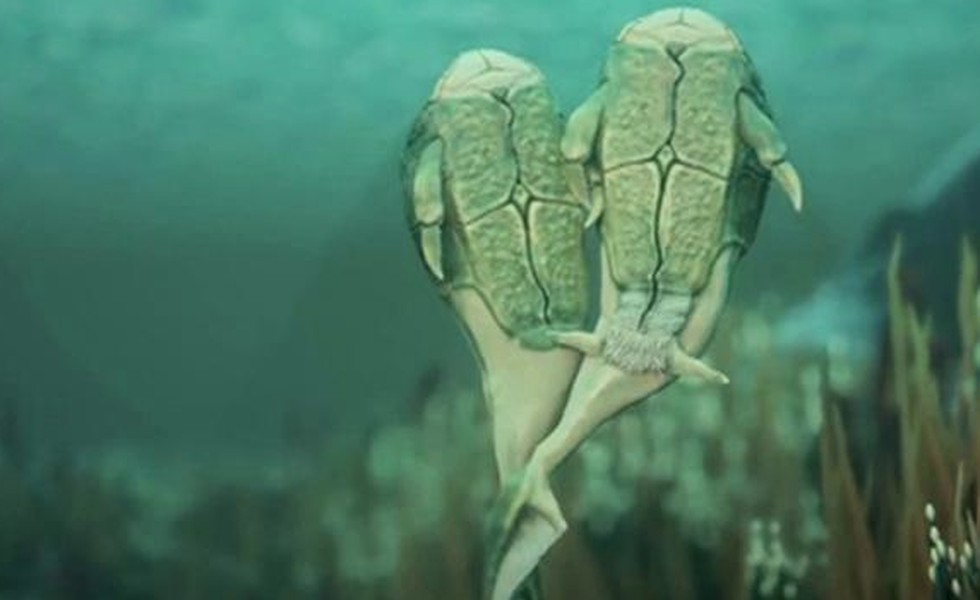Scientists discover the origins of sex — thanks to 'square-dancing fish'


A free daily email with the biggest news stories of the day – and the best features from TheWeek.com
You are now subscribed
Your newsletter sign-up was successful
New research from Flinders University in Australia has found that the first sexual intercourse occurred in ancient armored fish more than 385 million years ago.
A new study published Sunday in the journal Nature suggests that antiarch placoderms, fish that are among the first vertebrates with jaws, were the first animals to reproduce with internal fertilization. Their copulation methods "resembled square dancing," Discovery News reports.
Each male antiarch apparently had a bony, L-shaped clasper that "could have only reached the female's genital region if the fishes were lying side by side," study author John Long told Discovery News. The females' genitalia, meanwhile, included genital plates that helped lock the claspers into place.
The Week
Escape your echo chamber. Get the facts behind the news, plus analysis from multiple perspectives.

Sign up for The Week's Free Newsletters
From our morning news briefing to a weekly Good News Newsletter, get the best of The Week delivered directly to your inbox.
From our morning news briefing to a weekly Good News Newsletter, get the best of The Week delivered directly to your inbox.
"When you look at the shape of these structures, they can't possibly do anything in a missionary position," Long told the Sydney Morning Herald. "We've printed out 3D models of these fish, and I can play mating games with them, and the only way possible they can do it is sideways, square dance style, with their little arms entangled."
The scientists believe that the antiarchs were "the first animals to develop specific male and female genitalia, allowing them to have internal sex," the Sydney Morning Herald notes. The antiarch discovery proves that sexual intercourse began as many as 100 million years earlier than previously thought. Before fish had gender-specific organs, they would "shed their gametes in open water" to fertilize each other.
"This is not just about bony structures on these fish, it's about the evolution of behavior, of when sex first became fun," Long told the Sydney Morning Herald. "Why would something develop these big, bony clasper things and place them inside a female, unless they enjoyed the act?"
A free daily email with the biggest news stories of the day – and the best features from TheWeek.com
Meghan DeMaria is a staff writer at TheWeek.com. She has previously worked for USA Today and Marie Claire.
